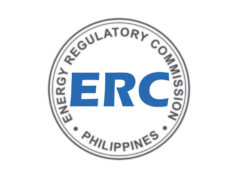
THE Department of Transportation (DoTr) said its strategy for promoting electric vehicles (EVs) will focus on creating “green” transport routes whose operators will be granted incentives for deploying EVs.
“We will release a department order that will further enhance and promote EVs so we see their proliferation in the next couple of years. We will provide incentives and leeway for EVs to (operate on transport) routes,” Transportation Undersecretary Mark Steven C. Pastor said during a Stratbase ADR Institute briefing.
Mr. Pastor said the government is working on low-carbon urban transport systems to increase demand for EVs and make the 5% fleet quota mandatory for transport operators.
“There is also a proposed incentive for EVs to ensure the readiness of green routes, charging stations, and other support programs,” he added.
In January, President Ferdinand R. Marcos, Jr. approved the reduction of tariffs to zero for EVs.
Mr. Pastor also estimated there is a potential market for public utility vehicles at $6 billion, with road projects at $1.2 billion.
“We see transforming the public transport system as a whole as the precursor of the success of all other sectors,” he added.
However, he said the transport sector faces challenges like poor road quality, congestion, the high proportion of private to public vehicles, limited investment in transport infrastructure and road safety issues.
The Philippines loses P3.5 billion daily due to traffic, according to estimates by Japan’s development cooperation agency. The losses are expected to triple by 2030 if congestion is not addressed in Metro Manila.
Bureaucratic processes are also viewed as a hurdle to infrastructure projects.
“The risks that the government encounter include the delay in implementation due to various internal processes and requirements in the Philippines. There’s also a strong need to tailor-fit the solutions to adapt to the Philippine market,” Mr. Pastor said.
Mr. Pastor said the government plans to remove the red tape “so those who want to participate have the leeway to implement.”
“One of the main complaints of private sector is the number of permits being required by proponents in these projects,” Terry L. Ridon, a lawyer and convenor of think tank Infrawatch PH, added.
Makati Business Club Executive Director Francisco Alcuaz, Jr. said there is much overlap in the responsibilities of local and National Government (NG) agencies, resulting in delayed projects.
“We need to build capacity in the NG and LGUs (local government units). Streamline the requirements,” he added.
He said the process of fare regulation must be depoliticized to allow transport operators to realize returns on their projects.
Aboitiz InfraCapital, Inc. President and Chief Executive Officer Cosette V. Canilao recommended the greater adoption of information and communications technology (ICT) infrastructure.
“Our government operations can become more transparent with better ICT infrastructure now we are moving towards the digital economy,” she said.
Ms. Canilao said that the government should create an enabling environment for the private sector to invest in, citing incentives, frameworks, and a clear pipeline to help the sector prepare for bids.
Mr. Ridon said that the public should be involved in the decision-making process for key infrastructure projects.
“Ideas should be subject to testing and scrutiny to communities. Never second guess or underestimate public sentiment,” he said.
“In every forum or consultation, the public should be there and be invited by the government so they can articulate their ideas. There is a real public impact if we fail in implementing good projects. Every step of the way, the public should be involved,” he added.
The government should also prioritize using railways and buses over roads, Mr. Alcuaz said.
“We are overweight on roads, we would like to be overweight in transport — that’s railways and buses,” he said.
Mr. Alcuaz also called for the privatization of the EDSA busway system and for it to be turned into a full service contracting system.
“It’s time to seriously consider putting it in place in a privatized (mode). The EDSA busway is a hybrid between rails and buses. They reflect a more affordable way to put a rail system in place, that’s a very beneficial endeavor for the government to pursue,” he said.
”Most bus systems in the developed world are real service contracting systems. That’s something they can and should roll out and more and more bus routes around the country to ensure that we have timely and adequate service and reduce congestion when buses pile up,” he added. — Luisa Maria Jacinta C. Jocson



